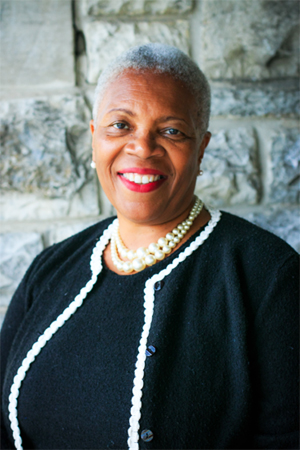
By Dawn Scotland
The Truth Reporter
Ohio Legislators, State Senator Paula Hicks-Hudson and State Representative Elgin Rogers, held an unofficial redistricting town hall for northwest Ohio on September 25 at The McMaster Center of the Toledo Lucas County Public Library.
Northwest Ohio was not included in the three recent public hearings held across the state by The Ohio Redistricting Commission. Therefore, the Lucas County legislators created their own town hall to represent northwest Ohio and take the feedback back to Columbus. The final public hearing was scheduled for the next day at the state capitol on September 26.
The two legislators explained the process and issues with the maps in the ongoing battle across the state and nation for fair maps that all parties believe are fair and constitutional.
“We’re in a situation where our maps have been gerrymandered…” stated Rogers. “These maps are not fair, these maps are not clear and these maps were intended so that one particular political party maintains power.” He explained, “Our colleagues in the Ohio House and Ohio Senate are not paying attention to the rules the citizens have come up with.”
Hicks-Hudson explained that the maps were introduced by the Ohio Redistricting Commission five days (September 20) before the final public hearing scheduled for last Tuesday. The Senator noted that the commission had 16 months to create new maps, “16 months ago the Ohio Supreme Court five times determined that the maps were unconstitutional… what has happened from [then] to today has been pretty much nothing.“
“It is important for us [the voters] in northwest Ohio to be heard….your voices will be taken back to Columbus, and we speak on behalf of you all.” said Hicks-Hudson.
Residents in attendance voiced their opinions to give back to the commission including their frustrations on the lack of timeliness by the ORC to provide maps that citizens could adequately review, the dissatisfaction of the NWO region in not being included by the official process and the splitting of districts in a way that disadvantages residents, among other comments.
The two legislators urged those present to send comments to their state legislators via email or call to voice their opinions. The two also documented responses to take back to the hearing.

The sixth set of maps were adopted Tuesday night in Columbus. The new maps indicate a Republican-to-Democratic advantage of 61 to 38 in the Ohio House, and a 23 to 10 Republican advantage in the Ohio Senate.
Following the decision, civil rights leaders with the Ohio Organizing Collaborative, the Ohio Unity Coalition and the Ohio NAACP noted that the new maps diluted the political power of Black voters. They released the following statement:
“For over a year, communities of color have been living in state legislative and congressional districts separated from or combined with communities where they do not share common interests; nor have the issues of concern to these voters been addressed by the new legislator who should be representing them,” said Pierrette “Petee” Talley, petitioner and executive director, Ohio Unity Coalition. “By ignoring the racial impact of the new maps on these citizens, the Commission has done a grave disservice by not assuring that districts are drawn that do not disenfranchise some voters at the expense of others. This minimizes voters’ ability to elect candidates to represent their interests. We are better than this as a state, it’s time to trust citizens, not politicians.”
The group continued to express its concerns.
“It is extremely frustrating that politicians are looking out for their own interests. Consequently, Black and Brown communities will end up with the short end of the stick,” said Jeniece L. Brock, Policy & Advocacy director at the Ohio Organizing Collaborative. “These maps dilute the political power of underrepresented communities, and it is evident politicians cannot be trusted with the task of drawing fair districts. We need an independent commission absent of politicians and with an inclusive process that allows Ohioans to have fair and just representation.”
Ohio is among more than 20 states where redistricting efforts following the 2020 census remain in contention, either because of ongoing lawsuits or efforts to redraw the districts. Last week in Florida a federal trial opened in which lawyers say Republican Gov. Ron DeSantis violated the U.S. Constitution by deliberately dismantling a congressional district that favored Black candidates (source Alternative Press). The same day, the U.S. Supreme Court upheld a ruling by the lower courts that Alabama maps must be redrawn to include more black voter representation.
The decision adopted in Ohio last week may be challenged again and again.
